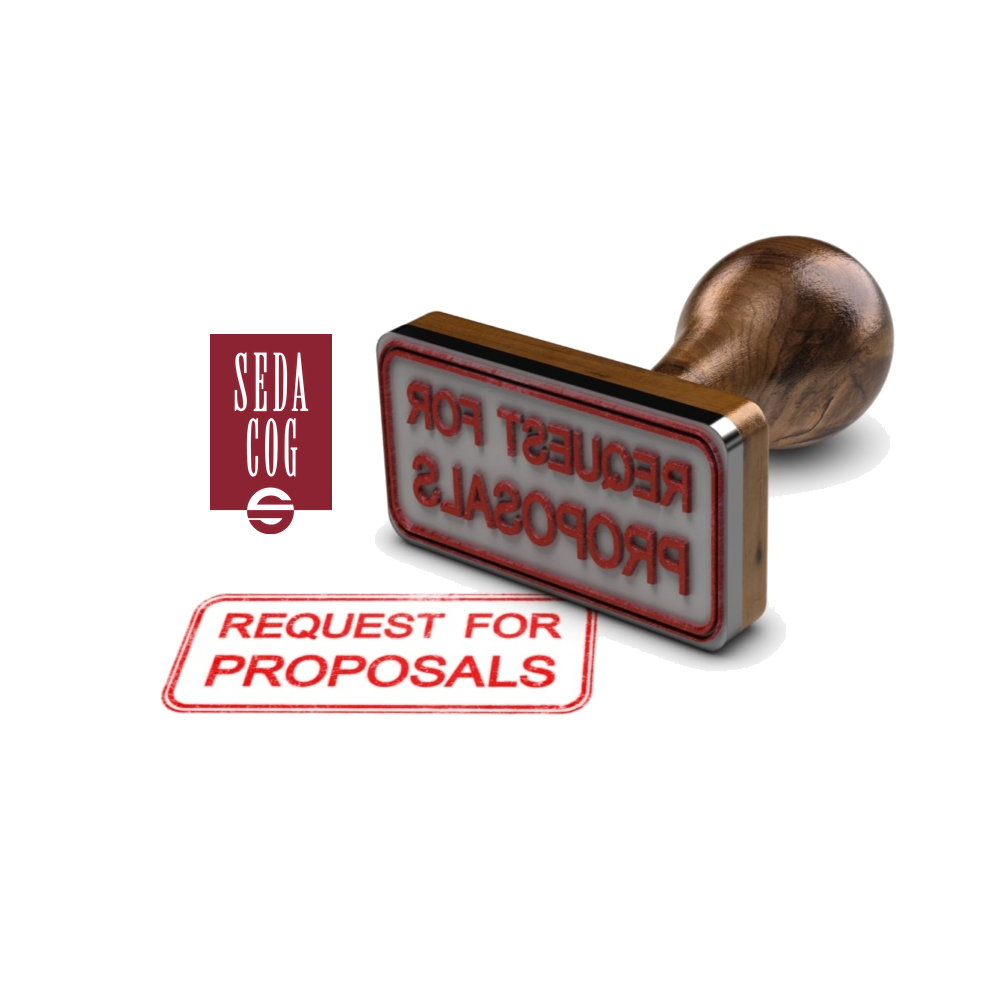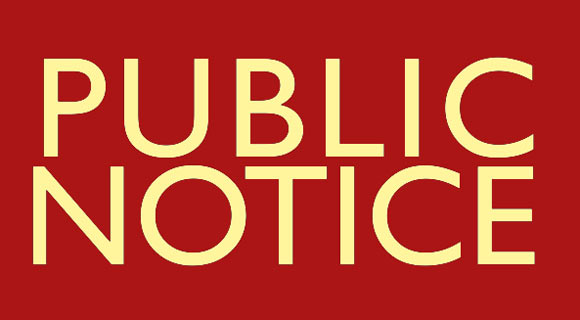SEDA-Council of Governments (SEDA-COG) is requesting proposals for broadband deployment from Internet Service Providers (ISP) and Wireless Internet Service Providers (WISP), to expand broadband service in four selected areas within Clinton, Lycoming, Northumberland, and Union Counties. The purpose of this RFP is to provide a minimum of 100/100mb service to businesses and 50/10mb service to residents within the project areas. The selected proposal will be eligible to apply for up to $1 million per county in low interest loans and $567,920 per county in reimbursable grants.
There is also a potential opportunity to make additional funding available from the Pennsylvania Redevelopment Assistance Capital Program (RACP) in the form of a reimbursable grant up to $250,000 that will be paired with the $1.5 million in loan/grant funds that would bring the total amount of funding available to $1.75 million per County. This additional funding, if approved will be used to expand the current project areas in each county.
Complete proposal details, including the required proposal format, may be obtained by contacting:
Scott Kramer
SEDA-COG
201 Furnace Road
Lewisburg, PA 17837
skramer@seda-cog.org
Proposals will be accepted until 2:00pm prevailing time, Friday, July 16th, 2021, at which time they will be publicly opened at the offices of SEDA-COG. Proposals shall be on the forms required, sealed, and clearly marked on the outside, “4 COUNTY RURAL BROADBAND DEPLOYMENT PROPOSAL,” and submitted to:
Scott Kramer
SEDA-COG
201 Furnace Road
Lewisburg, PA 17837
Proposals that are faxed or e-mailed to SEDA-COG cannot be accepted.
UPDATE 06/11/2021:
SEDA-COG has issued Addendum #2 and revised KMZ project area files (attached below) for the 4-County Broadband Expansion Project and has moved the RFP opening date to 2:00PM, Friday, July 16th, 2021. SEDA-COG apologizes for any inconvenience the added time to the project may cause.
Project Questions & Answers
Q. Must an ISP utilize the low interest loan program to submit a project proposal?
A. No. An ISP is not obligated to participate in the SEDA-COG loan program.
Q. What if our proposal that meets all the requirements for the project comes in less than the $2.1M allocated per county?
A. While it is not mandatory to access the full $2.1M in loan and grant funding, it is encouraged that ISPs do take full advantage of the funding and expand outside the project area. Those projects that are able to expand outside the initial target area, will score better than the competing ISP that is not expanding outside the targeted area.
Q. If it is strongly suggested to have a $2.1M buildout by expanding the targeted area, do we have to have to use the 1M of revolving loan fund?
A: No. An ISP can self-fund the 1M and/or utilize existing assets on the ground equivalent to 1M, excluding the $375K minimum ISP threshold requirement.
Q: Regarding the loan guidelines that states a loan may be prepaid without penalty. In the event of a prepayment, are all the future interest costs required to be paid at that point, or does the total of principal and currently accrued interest satisfy the loan?
A: No. Loan principal and accrued interest will be considered paid in full at the time of prepayment. However, assets with liens attached will continue for the term of the lien (5yr).
Q: Regarding the $375K ISP investment, if we have a few specific tower sites, for example that would be funded completely with ISP investment, would they be subject to the requirements like the Davis Bacon Act or the US Steel requirement?
A: Yes. Since there are federal (ARC) and possibly state (RACP) funds involved with this project, the entire project falls under the federal requirements when any type of construction occurs.
Q: Section 1 #5 states that SEDA COG will take a lien position on the fixed asset to be financed for “not less than 5 years.” Can you please provide some additional information about the lien and how it will be satisfied? Would SEDA-COG accept a performance bond in place of the lien?
A: We chose a 5-year lien due to the fact that most equipment would be at end-of-life after 5 years. SEDA-COG cannot accept a performance bond in place of the lien.
Q: If an ISP responds to the RFP with proposals for each of the four counties, would SEDA-COG be limited to accepting only one of the four proposals for that ISP?
A: Yes. As it stands now, due to the restrictions from our loan funding source, we are limited to awarding only one county to an ISP.
Q: Section 4 includes a note that requires contracts with subcontractors to include all requirements of the RFP. Please confirm if this requirement can be satisfied with an addendum to an existing contract.
A: Yes, as long as the signed addendum explicitly lists the RFP requirements, or refers back to the RFP requirements.
Q: Is taking out the loan required to access the full $817,920 grant? If an ISP has $375K in investment, and an additional $442,920 in lease costs, do they need to take out the loan to access the full grant funds?
A: No. The ARC funds will be the first set of funds applied to the project. Those funds require a 69% match. As such, if an ISP would like to access the full amount of ARC funds ($567,920 per county), the minimum match requirement would be $1,264,080 (per county). This would bring the overall total project cost for the county broadband project to $1,832,000. The matching funds can take the form of cash, a loan, land costs, building and equipment costs, or other soft costs and must be documented by the ISP.
Additional state grant funding (RACP) may also become available. If those funds become available, they may be used by the ISP to assist in the match of the ARC funds.
Project Area KMZ File (zip format)
Revised Northumberland and Union Project Areas (zip format)
ISP Contact List
In order to keep up-to-date on project changes, please enter your contact information below to be placed on our ISP contact list


